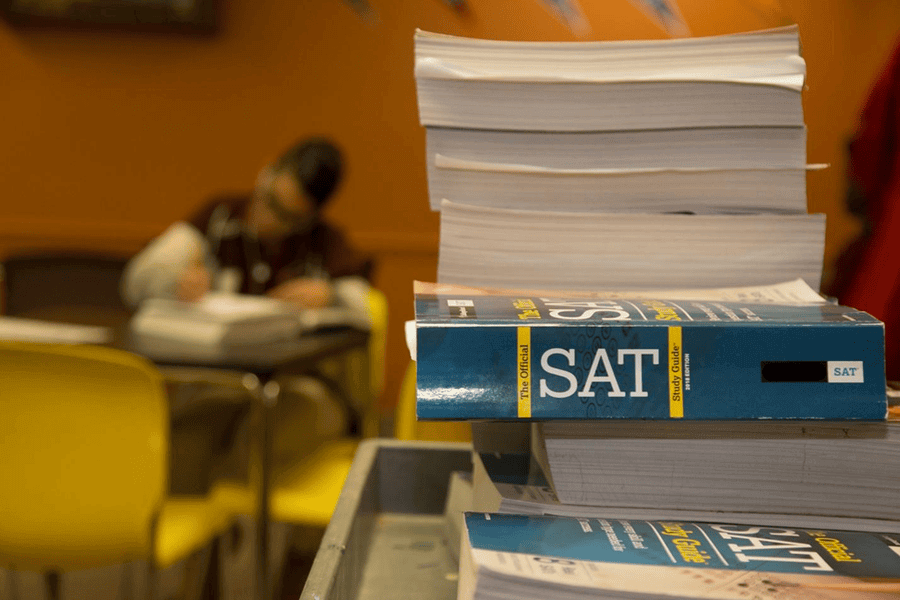The Joint Entrance Examination (JEE) Main is one of the pivotal assessments for students who want to pursue a career in engineering in India. JEE examination is conducted by the National Testing Agency (NTA), known for its difficulty level, and is considered one of the toughest entrance exams worldwide. Clearing JEE Main is important for appearing in JEE Advanced, which grants access to the reputable Indian Institutes of Technology (IITs). Moreover, a good score in JEE Main opens up opportunities to study at reputed institutions such as the National Institutes of Technology (NITs) and Indian Institutes of Information Technology (IIITs). Therefore, having a clear understanding of the exam’s structure and preparing accordingly is vital for every aspirant.
Overview of the National Testing Agency
Formed by the Ministry of Education, the National Testing Agency functions as an independent organisation under the Societies Registration Act, 1860. Its primary role involves conducting standardised examinations to assess candidates’ competencies for admission into leading educational institutions.
The NTA ensures fair, transparent, and credible evaluations while maintaining the integrity and security of the testing process. It plays a key role in advancing educational standards through rigorous and impartial assessments.
JEE (Main) Eligibility and Preparation
Let’s break down the key eligibility norms for the Joint Entrance Exam
To qualify, candidates must have completed their Class 12 or equivalent examination with Physics, Mathematics, and at least one subject among Chemistry, Biology, or Biotechnology.
A student may attempt the JEE (Main) over three consecutive years starting from the year they appear for their Class 12 exams. Each calendar year includes two sessions, January and April, which together count as a single attempt.
If your goal is to secure a seat in a prestigious engineering college, qualifying in both JEE Main and JEE Advanced is essential. Given the exam’s challenging nature, a disciplined study approach is necessary. While coaching can offer structured guidance, it’s not the only route to success.
JEE Main is administered online and follows an objective format. There are a total of 90 questions in the paper, 30 each from Physics, Chemistry, and Mathematics. Each subject section includes 20 multiple-choice questions (MCQs) and 10 numerical value questions. Out of the 10 numericals in each subject, only 5 need to be answered.
Also Read: Top 7 Engineering Courses to Pursue in 2025
Preparation Tips for Studying At Home
Here’s how to prepare for the JEE Mains exam at home:
Make a Practical Study Schedule
A well-structured study plan is the foundation of success. Break down the extensive JEE exam syllabus into shorter sections, focusing on high-weightage topics. Set daily or weekly goals, such as completing a specific chapter or solving a set number of questions for JEE, to track progress and stay motivated.
Prioritise Self-Study
Self-study plays a crucial role in grasping concepts thoroughly. Working through problems independently helps develop problem-solving skills and allows you to learn at your own pace. Minimise distractions in your study space to maintain concentration and efficiency. Further, if there is less distraction in your study room or environment, you will be more productive.
Manage Time Efficiently
Balancing studies with personal commitments needs disciplined time management. Allocate dedicated hours for preparation while ensuring enough time for relaxation. A well-planned routine prevents last-minute stress and ensures consistent progress. If you want to know how to prepare for JEE mains without coaching, then first understand how to manage time efficiently.
Choose the Right Study Resources
There are numerous books and materials available for JEE preparation; always select the right one. Choose study materials that enhance your understanding and problem-solving abilities instead of relying on rote learning. You can also take the JEE Mains mock test for better preparation.
Solve Previous Years’ Papers and Take Mock Tests
Regularly practising past JEE Main papers and taking timed mock tests helps you understand the exam pattern, question trends, and difficulty level. It also enhances speed, accuracy, and time management, while highlighting weak areas that need more attention.
Clarify Doubts Immediately
Never hesitate to ask teachers or peers for help when stuck on a concept. A clear understanding of difficult topics ensures you can tackle similar problems confidently during the exam. Discussing doubts also reinforces learning and improves retention.
Revise Consistently
Given the vast syllabus, frequent revision is essential to retain concepts. Regularly review key formulas, theories, and use apps for JEE preparation and problem-solving techniques to keep them fresh in your memory. Quick, targeted revision sessions yield better results than rushed, last-minute studying. There are many best YouTube channels for JEE preparation for clarifying doubts.
Benefits of Regular Revision
In today’s dynamic academic environment, solid exam preparation for JEE plays an important role in helping students reach their academic goals. There are various approaches to studying, regular revision proves to be one of the most effective tools for success.
Wondering why? Regular revision involves going back to previously covered topics at set intervals. This repeated engagement with the material helps strengthen what you’ve learned, strengthens memory, and encourages a deeper grasp of complex ideas. Using a mix of revision techniques over time enhances understanding and supports long-term retention.
Also Read: Top 8 Engineering Entrance Exams in India After 12th
Why Regular Revision Matters?
Regular revisions bring several key advantages:
- Stronger Recall: Reviewing material multiple times builds stronger mental connections, making it easier to retrieve information when it counts.
- Better Understanding: Each round of revision offers the chance to see concepts from new angles, helping you connect ideas and understand the bigger picture. Stick to a timetable for JEE preparation for better results.
- Help to Boost Confidence: Familiarity with the content through consistent review increases your comfort level, giving you more confidence heading into the exam hall.
- Lower Stress Levels: Knowing the material inside and out reduces last-minute panic and helps you stay calm and focused during exams.
- Early Detection of Gaps: Revisiting topics frequently makes it easier to spot weak areas. This gives you the chance to strengthen them well before the exam.
Useful Revision Tips
To get the most out of your revision sessions, try blending a few smart techniques that work:
- Gaps in Repetition: Go over your material at set intervals, like after a day, then three days later, then a week. This helps you lock the information into your memory.
- Active Recall: Close your notes and test yourself. Try to remember key points or explain concepts out loud. It pushes your brain to work harder and strengthens understanding.
- Interleaving: Always switch between different topics. This keeps your mind sharp and helps you learn more effectively.
- Summarisation: Break down what you’ve learned into short, clear summaries or outlines. It helps you spot the main ideas fast and review them quickly.
You can use these strategies and free apps available in the Play Store for JEE preparation, it’ll work better.
Understanding the exam pattern, creating a realistic study schedule, and staying motivated can significantly boost your chances of success. All said and done, cracking JEE Main from home is absolutely achievable with the right mindset and strategy.








